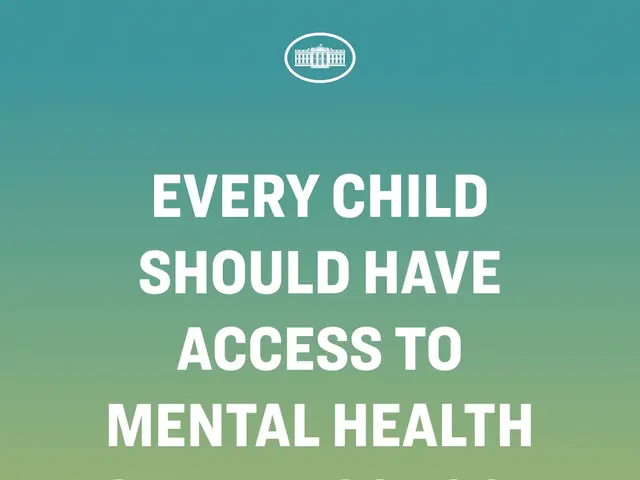Depression and Its Impact on Dental Health: Uncovering the Hidden Connection
Linking Mental Health and Dental Health: Exploring the Relationship Between Depression and your Teeth's Condition
Depression, a prevalent mental health issue, has an extensive reach—it doesn't just affect an individual's emotional well-being but also their physical health, including their dental well-being. This notion of 'depression teeth' has gained traction, shining a light on the powerful impact of mental health on oral health.
The Dentist's Perspective - Spotting the Signs of Depression in Dental Health
Dentists, with their intensive view of oral health, can often identify the signs of depression through various indicators. These may include an increase in tooth decay, gum inflammation, and dry mouth symptoms. By recognizing these patterns, dentists can guide patients towards appropriate mental health support.
The Role of Depression in Deteriorating Dental Health
Depression can take a heavy toll on multiple aspects of an individual's life, including their dental health. Here's how:
- Neglect of Oral Hygiene: When grappling with depression, maintaining regular self-care routines, such as brushing and flossing, can become challenging. This neglect can lead to a higher risk of cavities, gum diseases, and other dental issues.
- Diet and Nutrition Changes: Depression frequently impacts appetite and eating habits. Some individuals may be drawn towards comfort foods high in sugar and carbohydrates, while others experience decreased interest in eating altogether, which can negatively impact dental health.
- Increased Risk of Dry Mouth: Antidepressant medications often induce dry mouth as a side effect. Saliva, crucial for maintaining oral health by neutralizing acids and washing away bacteria, is less abundant, elevating the risk of tooth decay and gum disease.
- Teeth Grinding and TMJ Problems: Depression and anxiety commonly coexist, each leading to conditions like bruxism (teeth grinding) and temporomandibular joint (TMJ) disorders. These conditions can exist in a cyclical relationship with depression and oral health.
- Weakened Immune System: Chronic depression weakens the immune system, leaving individuals more susceptible to oral infections and slower to heal from dental procedures.
From Dentures to Self-Esteem - Mending Depression Teeth
Addressing dental issues linked to depression necessitates a comprehensive approach:
- Professional Mental Health Support: The first step in improving both mental and dental health involves tackling the underlying depression. This might involve therapy, medication, or a combination of treatments.
- Establishing a Consistent Oral Care Routine: Creating and maintaining a regular dental hygiene routine is essential. This could mean setting reminders or incorporating oral care into established routines for those struggling with depression.
- Dental Product Selection: Consult a dentist for product recommendations to address issues like dry mouth or sensitive teeth, common among individuals with depression.
- Regular Dental Check-ups and Cleanings: Keeping up with routine dental appointments is vital for preventing and tackling oral health problems early on.
- Addressing Specific Dental Issues: Depending on the extent of dental problems, treatments may comprise fillings, gum disease therapy, or even dentures, which, though temporarily depressing, can ultimately boost overall oral health and self-esteem.
The Psychological Implications of Poor Oral Health - 'Dental Depression'
'Dental depression' refers to the psychological impact of poor oral health on an individual's mental well-being. This concept underscores the bidirectional relationship between dental health and depression:
- Poor Oral Health Contributes to Depression: Dental issues can result in pain, embarrassment, and social isolation, potentially aggravating depressive symptoms.
- The Cycle of Deteriorating Oral and Mental Health: As dental problems worsen due to neglect, they can further impact self-esteem and mood, creating a vicious cycle of declining oral and mental health.
Preventing and Managing Depression-Related Dental Problems - A Holistic Approach
A holistic approach to health is essential in addressing the link between depression and oral health:
- Stress-reduction Techniques: Practices like meditation, yoga, or deep breathing exercises can assist in managing stress and minimize its impact on both mental and oral health.
- Balanced Nutrition: Consuming foods rich in omega-3 fatty acids, vitamins, and minerals that promote brain and oral health is crucial.
- Support Systems: Engaging with support groups, friends, and family can offer emotional support and encouragement for maintaining both mental and oral health routines.
- Exploring Complementary Therapies: Some individuals find relief through alternative approaches. For instance, chiropractic care has demonstrated potential in alleviating certain depressive symptoms, which could indirectly benefit oral health.
It's worth noting that depression can manifest differently, affecting various aspects of personal care. For example, depression-related hair neglect, leading to matted hair, serves as a reminder of how mental health impacts overall self-care routines.
Also, consider that other health issues can contribute to or exacerbate depression. For example, hearing loss has been linked to an increased risk of depression, emphasizing the interconnected nature of physical and mental health.
In some instances, depression may even manifest surprisingly physically. Although further research is needed, studies exploring potential links between depression and kidney stones highlight the complex relationship between mental and physical health.
Lastly, it's important to be mindful of various ways that anxiety and depression can manifest orally. Some individuals may experience 'anxiety tongue,' characterized by symptoms like a burning sensation or changes in taste perception.
In conclusion, the relationship between depression and oral health is profound and multifaceted. By understanding this connection, individuals can implement measures to improve both their mental well-being and dental health. It's crucial to remember that seeking help for depression is advantageous for mental health and can also have positive impacts on overall physical health, including oral health. By addressing both aspects simultaneously, individuals can work towards better overall health and quality of life.
References
- Kisely, S. (2016). No Mental Health without Oral Health. The Canadian Journal of Psychiatry, 61(5), 277-282.
- Dumitrescu, A. L. (2016). Depression and Inflammatory Periodontal Disease Considerations-An Interdisciplinary Approach. Frontiers in Psychology, 7, 347.
- Delgado-Angulo, E. K., Sabbah, W., Suominen, A. L., Vehkalahti, M. M., Knuuttila, M., Partonen, T., ... & Tsakos, G. (2015). The association of depression and anxiety with dental caries and periodontal disease among Finnish adults. Community Dentistry and Oral Epidemiology, 43(6), 540-549.
- Okoro, C. A., Strine, T. W., Eke, P. I., Dhingra, S. S., & Balluz, L. S. (2012). The association between depression and anxiety and use of oral health services and tooth loss. Community Dentistry and Oral Epidemiology, 40(2), 134-144.
- Alkan, A., Cakmak, O., Yilmaz, S., Cebi, T., & Gurgan, C. (2015). Relationship between psychological factors and oral health status and behaviors. Oral Health & Preventive Dentistry, 13(4), 331-339.
- The mental health impact of 'dental depression' extends beyond an individual's emotional well-being, potentially contributing to anxiety, highlighted by the phenomenon of 'anxiety tongue.'
- In pursuit of holistic health, science is uncovering the significance of stress-reduction techniques and balanced nutrition in promoting mental health and oral health.
- Recognizing the psychological implications of poor oral health is integral to understanding the bidirectional relationship between dental health and mental health—from 'depression teeth' to the cycle of deteriorating oral and mental health.
- Alongside professional mental health support, self-care plays a vital role in maintaining dental health—from creating a consistent oral care routine to seeking guidance from dentists for appropriate dental products.







